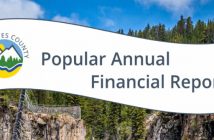Image source: https://www.pexels.com/photo/person-holding-gray-twist-pen-and-white-printer-paper-on-brown-wooden-table-955389/
As a business executive, you are tasked with making decisions that will impact the efficiency and profitability of the entire organization. It’s a rough job, but the life of the business rests in what you approve or reject on your desk each day.
Then again, not every document, proposal or request that goes through you is made in good faith. Considering the large volume of information you need to analyze each day, it becomes difficult to avoid any instance of fraud that will lead to long-term legal and financial problems for your company. As technology evolves, the risk of fraud increases and it becomes even more complicated to avoid advanced forms of data theft, asset misappropriation, and embezzlement.
How can modern executives such as yourself prevent these scenarios from happening?
- Consider background checks
The first layer of protection you have against potentially destructive forms of fraud is an effective system for background checking. Screening candidates who will be occupying critical positions in the enterprise (such as accounting or procurement) helps you avoid hiring people with controversial pasts.
Prevention is always better than cure, so be sure to go three levels deep and include social security validation and criminal registry checks before on-boarding a new employee.
- Invest in anti-fraud tools
If you are in the e-commerce industry, detecting fraud shouldn’t be done manually since there is always room for human error during validation processes. Especially in cases of digital transactions and online money transfers, you will want to use the right automated systems to help evaluate your organization’s risks and detect potential scenarios.
There are a number of fraud prevention software that fits your organization’s requirements, but you might want to start with platforms like ClearSale and Riskified, both of which are great for filtering legitimate customers.
- Get help with international due diligence
Whether you are dealing with a China-based supplier or outsource your services to a company somewhere in the Caribbean, you will need to know if such entities are legitimate in the first place. This makes for a very complicated task since these foreign entities leverage local and international regulations in order to commit acts of fraud.
Before you sign any contract or agreement, you will need to verify the entity first and assess if there isn’t any risk attached to the deal. Then again, international due diligence is a complicated matter and you may not have the resources you need for the process. This is where companies like the Diligence International Group come in. Using their expertise, these firms are capable of validating deals across borders and generating detailed reports that will drive your decisions. You may not have a good idea whether a business entity will work for your benefit, but having someone else investigate helps you avoid entering into deals that will do more harm than good.
Fraud is becoming rampant nowadays since it has become easier for just about anyone to lie and steal. With that being said, fraud prevention should be a priority so your organization’s growth goes unhampered.




